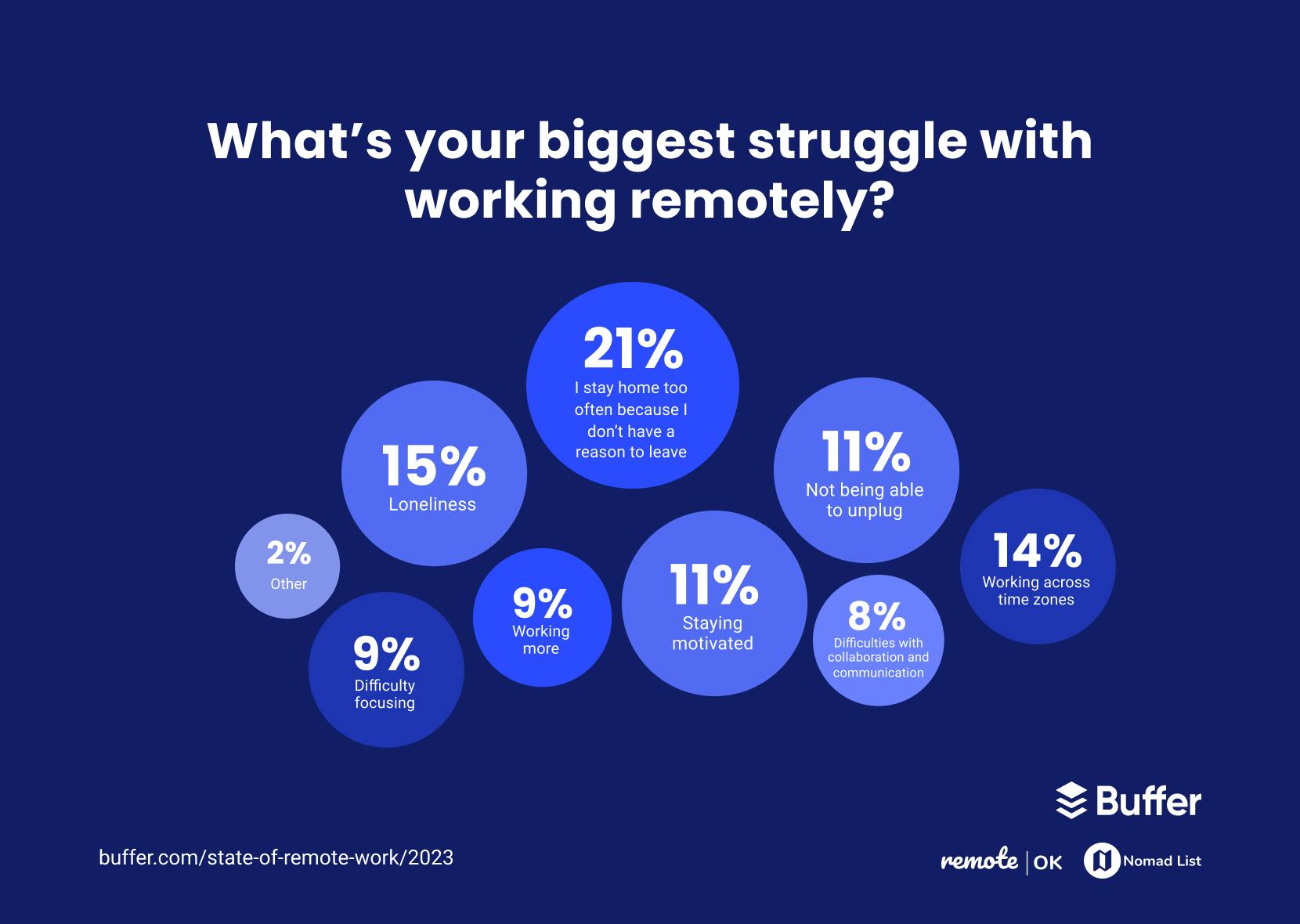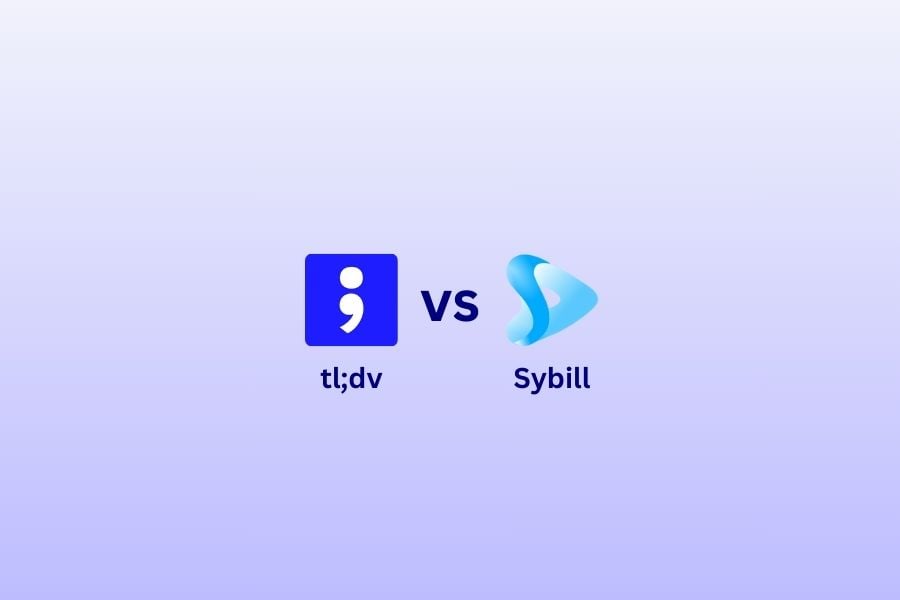Managing and leading a sales team is hard. It was hard when it was in an office and arguably the move to remote has made it potentially even harder. Sales is often categorized by a buzzy and busy environment. It’s often been known for keen sales managers to be behind a rep, breathing down their neck and mouthing “CLOSE IT! CLOSE IT” while they are on a call.
However, that’s not the way it is anymore following 2020, and 1 in 4 people would quit their job if they couldn’t work remotely. This has meant many reps can breathe a sigh of relief and calmly speak to a prospect without a huge audience anymore, it does come with some challenges when it comes to managing people who are out of sight.
Working from home has meant that office backdrops are now living rooms, business attire is smart on the top and dinosaur slippers on the bottom. Zoom calls and Microsoft Teams are now boardrooms, where the phrase “YOU’RE ON MUTE” is probably muttered in at least one sales pitch a day.
Without the physical office environment to anchor and breed an atmosphere of camaraderie (or should that be competition?) the approach to sales management from a distance has had to change.
And while for many it may seem daunting it has also offered a unique opportunity to redefine the essence of what makes effective leadership. It has also meant that sales managers and teams can make the most of the tech boom to CLOSE MORE DEALS using innovative things such as sales recording software and more!
@tldv.io Shoutout @Will Aitken for this one #sales #salesmemes #saleshumour #marketing #product #dev #customersuccess
♬ original sound - tldv.io - AI Meeting Recorder
How To Be The Best Gosh Darn Remote Sales Manager
Challenges of Managing Sales Teams Remotely
So if you are a sales manager, or even sales director, and you are trying to have the biggest impact on a team spread across the country, or even the world, what are some of the challenges you might face daily?
In The State Of Remote Work report by Buffer in 2023, there were some particular highlights that can really impact sales people.

Communication Barriers:
Remote work can lead to misunderstandings and miscommunications due to the lack of face-to-face interaction. Different time zones can further complicate timely communication. As you can see from the Buffer report these are two common threads – 8% are worried about communication and 14% struggle with working across time zones.
Team Cohesion and Morale:
Keeping team members feeling connected and part of a cohesive group is more difficult when everyone is working from different locations with 15% of respondents citing loneliness. While upsetting on an individual level overall it can impact morale and the general team spirit.
Tracking Performance and Productivity:
Without the ability to observe work habits directly, managers may find it challenging to accurately assess performance and productivity levels. And those who are working remotely often find they feel they are working more (9%), unable to unplug (11%) and even not leaving the house because they haven’t really got anywhere to go (21%).
Technology Dependence and Issues:
Remote sales teams rely heavily on technology, which can lead to disruptions if there are connectivity issues, software problems, or a lack of access to necessary tools.
Training and Development:
Providing effective sales training and development opportunities remotely can be challenging, especially when trying to simulate the hands-on experiences that are possible in an office environment.
Maintaining Accountability:
Ensuring that team members stay accountable for their tasks without micromanaging can be a delicate balance to strike in a remote setting.
Cultural and Language Differences:
For global teams, differences in culture and language can lead to misunderstandings and can affect sales strategies and team dynamics.
Time Management:
Remote workers might struggle with time management due to the blurring of home and work life boundaries, potentially leading to burnout or reduced productivity.
Customer Engagement Strategies:
Adapting sales techniques to suit remote interactions with clients can be challenging, especially for sales strategies that traditionally rely on in-person meetings.
Security and Confidentiality:
Ensuring the security of confidential information can be more complex when team members are accessing documents and systems from various networks outside of a secure office environment.
While each one isn’t a huge issue as such individually, managing and balancing each challenge requires a proactive approach. Regular check-ins, clear and kind communication, utilizing tech and creating a good company culture that engages remote team members is key to success. So how can we do this?
The Role of Technology in Remote Sales Leadership
Despite all the potential issues that can arise as mentioned above, some solutions and workarounds lean into the joys of technology. And while it’s not as naturally easy to sit down and and talk to your team members when they are a little green “Online” button, it can be achieved.
Enhancing Video Conferencing with Third-Party Tools:
Video conferencing is the linchpin for sales remotely nowadays. As much as you CAN get things done by email, people buy from people, natural conversations flow and reveal insights into potential customers’ issues and they just create a better sales situation. While most will already be familiar with Zoom, Microsoft Teams and Google Meet, the integration of third-party tools like tl;dv significantly enhances this conversation and brings a conversation into the whole ecosystem for better sales, better customer success, better training and better planning ahead.
tl;dv in particular can enhance your sales team meetings (and provide you with that all important CRM data and insight). As well as being a powerful AI-powered meeting summarizer it can transform standard meetings into highly efficient and productive sessions. It offers the ability to select meetings for summarization based on library filters, uses pre-defined prompts or create custom ones for tailored summaries. You can even “Interview” the sales call library and leverage the AI insight into where deals are at, where certain sales reps need some support and even how many times someone said power words.
Project Management Software:
These applications are instrumental in organizing tasks and tracking progress, ensuring every team member remains accountable. This directly tackles the challenge of tracking performance and productivity by centralizing all project-related data and documentation. They facilitate effortless collaboration, enabling teams to work together efficiently, regardless of geographical barriers. Some great tools for Project Management include BaseCamp and Asana.
Customer Relationship Management (CRM) Systems:
CRM systems, such as Salesforce, HubSpot and Pipedrive, act as a hub for managing all customer interactions, leads, and sales opportunities. While CRMs aren’t new, the integration to CRM with tools like tl;dv means that they are never filled in with just an “x” again. The data is automatically pulled through for detailed and rich notes that can help push the sales process along.
Automation Tools:
By automating routine tasks such as data entry, email campaigns, sales reports and lead scoring, these tools significantly enhance productivity. Automation tools also play a crucial role in ensuring the security and confidentiality of information by standardizing data handling and storage procedures, thus reducing the risk associated with remote access to sensitive data. If you’re on the lookout for a solid automation tool to fit within your system, then some good products to check out include Moxo, Marketo, SalesMate and Zapier.
Effective Communication Strategies
Communication is often at the heart of most team issues, and even the best of intentions when it comes to relaying information can get scrambled when not “in-person”. Managers should prioritize establishing regular video calls, not just for formal meetings but also for informal check-ins, to maintain a sense of connection among team members. These interactions are vital for building rapport, fostering a collaborative environment, and ensuring that everyone is aligned with the team’s goals and expectations. These need to be natural, even deemed as a casual coffee, and to be encouraged to be positive and not micromanagey.
A worldwide survey by Boston Consulting Group found that out of 12,000 employees from across the globe the ones that felt “socially satisfied” were 2 to 3 times more productive.
One key to effective communication is setting clear guidelines on how and when to communicate. Whether it’s through a quick message for immediate concerns or a scheduled call for more in-depth discussions, knowing the appropriate channel can streamline communication and minimize misunderstandings. Additionally, it’s important to create an atmosphere where team members feel comfortable voicing their opinions and concerns. Encouraging open dialogue ensures that ideas are shared freely, and issues are addressed promptly, contributing to a more cohesive and supportive team dynamic.
Keeping Your Sales Team Motivated
One of the hardest parts of being a sales manager or director is morale and motivation. When the chips are down, the prospects aren’t replying it can be incredibly tough to keep that mental resilience going, not just for yourself, but individual people. While there isn’t the “Ughhh, the data” conversations we once would have had in the office, individuals at home working away can end up feeling demotivated and isolated as a result.
One way to encourage your team is through a virtual sales contest. These contests can be tailored to various objectives, such as highest sales in a month or most new clients acquired, with rewards that resonate on a personal level or contribute to professional growth. They don’t even need to be based on the end-numbers either, smiles achieved, sat rate, email efficiency – these are all metrics you can gamify.
Recognition also plays a crucial role in keeping morale high. By frequently acknowledging individual and team achievements not only boosts confidence but also reinforces the value of each member’s contribution to the team’s success. This can be as simple as a shoutout during a team call or as elaborate as a virtual awards ceremony.
And finally, everybody is human! By injecting humor into virtual team-building activities can turn an ordinary event into a memorable experience. Imagine a virtual escape room challenge that goes hilariously off the rails, leading to unexpected teamwork lessons and bonding over shared laughter. Or a monthly food club where everybody recommends a product or cuisine for everybody to try together for lunch one day,
The key to keeping your team motivated from afar lies in understanding their individual needs and preferences, offering meaningful rewards, and finding joy in the journey together. By embracing both the challenges and the peculiarities of remote work, leaders can foster a motivated, engaged, and cohesive team.
Monitoring and Enhancing Performance Remotely
As much as we want to say that work should be all fun and games, at the end of the day you are there to work, bring in sales and drive growth. So keeping a close eye on performance metrics and delivering constructive feedback are crucial.
There are a number of tools that you can use for measuring performance, but ultimately having very clear (and arguably simple!) key performance indicators (KPIs) makes it easier. If your sales team know what is expected from them, by when and by what means, communication is much easier and everybody knows where they stand and where they need to shift focus.
When providing feedback, it should be as empathetic as it is systematic. One-on-one video calls should be used here, it adds nuance, facial expression and a chance to reply. Shooting off emails pulling up people on particular shortcomings can be inferred, even if not meant to be, as aggressive/clipped or can even send some reps into a spiral of anxiety – further impacting their work. Equally, when conducting a call video it’s crucial to focus on actionable feedback that empowers team members to develop their skills and achieve their targets. Processes are often the key to sales success. Charisma and skills are one thing, but getting people to turn up and repeat the process over and over again is normally the work that achieves the big wins.
Recordings = Easy Performance Monitoring
An effective method to enhance performance is to review recorded sales calls and meetings. This isn’t about keeping tabs on team members but rather a tool for self-improvement and coaching. A meeting recording software can be invaluable here, offering a chance to revisit client interactions, understand different selling styles, and identify best practices. It’s like having a game tape that sales professionals can study to refine their approach, improve their pitch, and better handle objections.
This strategy is not about micromanaging but fostering a culture of continuous learning and improvement. By leveraging the right tools and adopting a supportive approach to feedback, leaders can guide their remote sales teams towards higher performance and greater achievements.
Building a Culture of Trust and Accountability
For any business, trust and accountability are some of the most important things to overall company culture. For too long remote and home working has been viewed by many as “easy” and “less” when it comes to work. But this simply couldn’t be further from the truth.
A remote team, that works effectively, needs to have a solid culture. And that solid culture needs to be based on a good level of trust and personal (and professional) accountability.
However, to create a culture of accountability a sales manager or director must be setting clear expectations, providing the necessary tools and support, and then trusting team members to follow through.
As a sales leader you need to remember that you are a leader and not a sales reps parent.
To do all this and then micromanage from a distance undermines the whole structure and process.
So while regular check-ins and transparent communication channels are crucial, it’s also important to celebrate successes and learn from mistakes together.
Here are three scenarios that you can, as a sales manager/director/leader, demonstrate a healthy culture of trust (and an example of what to avoid.)
Scenario Number 1
The “working day” has started. Your rep hasn’t logged onto the online system.
The first thing to do is check to make sure that they haven’t got any PTO or a medical appointment.
Secondly, what time is it? If it’s a few minutes past 9am then they could be having Internet issues. It’s best not to jump to conclusions.
Thirdly, what is their output like? While they may not be online, if they are over target and have been putting in the work this month it might be worth cutting them some slack.
Try not to react to the specific instance, but if it’s part of a bigger trend this is something you can communicate during a 1:1.
The thing NOT to do, is start calling them on their personal mobile and sending them numerous Slack messages demanding to know where they are.
Scenario Number 2
A key report is due by end-of-day, and your sales rep sends a message in the late afternoon explaining that they’re going to miss the deadline due to unforeseen client issues that demanded their immediate attention.
The first step is to assess the situation calmly. Understand the context and the impact of the missed deadline on the team and client deliverables. Remember, emergencies happen, and flexibility is part of managing a remote team.
Secondly, communicate. Ask for a brief update or report on the client issue that arose, to gauge the severity and to understand better how future situations might be handled differently. This helps in understanding whether this was truly an unforeseen circumstance or a result of poor time management.
Thirdly, offer support and solutions. Depending on the severity of the delay, discuss potential ways to mitigate the impact. This could include reallocating resources temporarily, adjusting timelines if possible, or even jumping in to assist if the situation calls for it.
The key here is to use this as a learning opportunity. Discuss what could have been done differently, both in managing the client issue and in communicating about the delay earlier. Encourage proactive communication for future incidents.
What you should avoid is immediately expressing frustration or disappointment without understanding the full context. Publicly reprimanding the rep or making hasty decisions about their commitment or capability can damage trust and morale. Instead, maintain a constructive approach that focuses on solving the problem and improving for the future.
Scenario Number 3
Your team has just closed a significant deal, a result of months of hard work, collaboration, and persistence. One of your sales reps was instrumental in navigating the complexities of the deal.
The first thing to do is publicly acknowledge and celebrate the success. This could be during a team call, in a group chat, or through a company-wide announcement, highlighting the rep’s role and the team’s effort. Recognition is a powerful motivator and reinforces the value of hard work and dedication.
Secondly, consider rewarding the achievement. This could be in the form of a bonus, an extra day off, or another form of recognition that aligns with your company’s culture and policies. It’s essential to make the reward meaningful to the rep and seen as valuable by the rest of the team.
Thirdly, use this success as a learning tool. Organize a debrief session where the rep can share their experience, strategies, and what they learned through the process. This not only celebrates their success but also allows the rest of the team to learn and apply these insights to future opportunities.
What to avoid here is overlooking the success or failing to recognize the effort publicly. This can lead to a sense of underappreciation and can diminish the motivation and morale of the team. Additionally, avoid attributing the success solely to external factors or luck; acknowledge the skill, effort, and strategies that led to the win.
In this environment, trust grows from the understanding that everyone is working towards the same goal, even if their home office happens to be in their kitchen.
The Future of Sales Leadership
It’s clear that the strategies and technologies adapted for remote work are not just temporary fixes but the beginning of how sales will be conducted from here on out.
Cold calling centres and face-to-face sales reps, while they won’t totally disappear, are certainly going to be less and less common.
Leadership in a remote sales team world needs to be dynamic, just as the tech that supports it. And while “You’re on mute” is the current hot phrase, in years to come that will probably end up being replaced and sent deep into nostalgia. We might even be able to program our very own sales avatars in future that do all the selling for us!
As a sales manager the ability to adapt, innovate, and perhaps most importantly, have a laugh and build a great team dynamic is going to be the key to leading sales teams from a distance.







